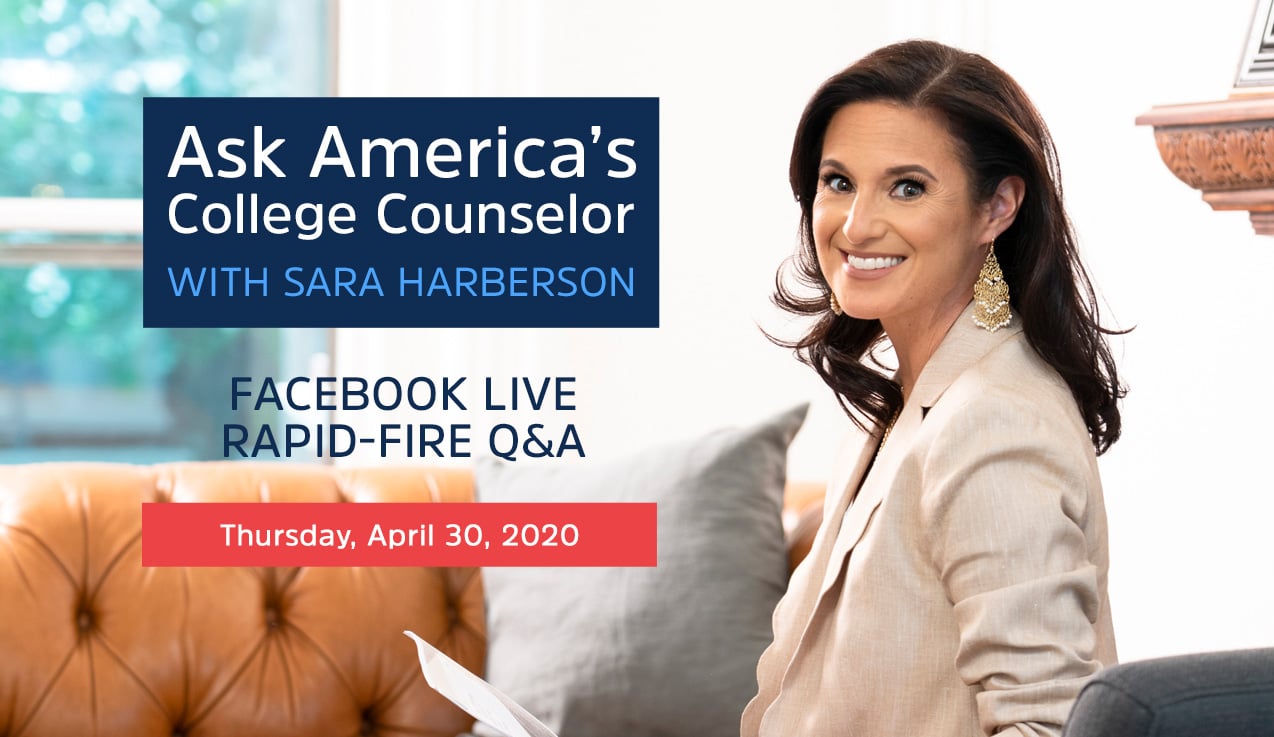Last week during a Zoom call with my Application Nation - Class of 2021 group (high school juniors and their parents), we discussed how differently each high school is handling grading and coursework during the COVID-19 quarantine.
Some schools are allowing students to take the remainder of their classes using a pass/fail grading system, while other schools aren't skipping a beat and demanding even more from their students than ever before. During the call, every family seemed to mention another highly nuanced approach. My message to them over these last eight weeks has been to make sure their child's high school is clear about what they are doing.
But that's a tall order. That relies on the fact that the high school's college counselors need to be proactive about this by ensuring that the school's grading policy and COVID-19 plan are clear to college admissions officers. If not, admissions officers may miss something and hold it against the student.
Want to learn more about COVID-19 & college admissions? Check out my free resources.
Should the school's policy and plan be listed on the transcript, school profile, and possibly even included in the counselor's letter of recommendation? What if some schools put it in different places? Will every admissions officer take the time to find out?
I remember being an admissions officer trying to read as many applications as I could in a day. If a school policy was not listed or was unclear, this could disadvantage the student. There has to be a solution to ensure that students are not hurt by this.
While all of our lives are dominated by COVID-19 right now, I do not want anyone to be defined by this. In my many sleepless nights, I have had time to reflect on who I am and how I choose to live my life. This pandemic can give all of us a newfound perspective. I urge the Common Application, Coalition Application, and all institutional-specific applications to reflect as well and make necessary changes for the 2020-2021 forms and beyond. Let's make sure college admissions officers know what our kids have been dealing with, and most importantly, how they see themselves coming out of it.
Towards the end of our Zoom call, one parent innocently asked, "Why can't the Common App include a question this year on the School Report Form asking the college counselor to provide an explanation of how the high school handled the pandemic?" Brilliant.
Having this question added to all applications this year would provide the space necessary for the counselor to copy and paste the school's policy clearly, easily, and in a consistent space. The admissions officers would know exactly where to go to find an explanation instead of searching through the different pieces of the application hoping to get some answers.
While we are at it, let's not stop there. The Common Application, Coalition Application, and all institutional-specific applications could also provide a space this year on the student's portion of the application so that they too can provide more context about how they were affected by the pandemic. This could be an optional question to answer, but it could offer students space and encouragement to mention how they were personally and educationally impacted by COVID-19.
Some students had no access to online learning. Some students had major family responsibilities which didn't permit them to do anything extra. Some students will want to explain all of the things they had hoped to do this spring and summer. By providing this space on every application, students could dictate their story rather than letting something out of their control do it for them.
RELATED READING: Summer Plans Fell Through? Here's How to Pivot
This brings up an important question which I have been asked almost daily since mandatory quarantines spread across the country: "Should I write my main college essay on the pandemic?"
My answer is usually "no." The fact is that a lot of students will write 650 words about this topic. I don't want you to do what everyone else is doing. Give those admissions officers something else to learn about you in that section of the application. If not, their notes on your essay may read like this, "Another COVID-19 essay."
I was an admissions officer during Hurricane Katrina, 9/11, and other natural and unnatural disasters. The students who were directly impacted by these events often wrote about them for their main college essay. It didn't make their individual stories less meaningful, but I had read so many essays about the same topic that it was tough to distinguish them all.
Obviously if your story is so different, you can use the extra space I hope colleges will provide on their applications or your college counselor can provide this important detail in their letter of recommendation on your behalf. Interestingly, this is the same advice that I would give to a student who has dealt with a medical issue during high school or got a very low grade in a class. I never encourage students to write their main college essays about a topic that limits how admissions officers view them. I never want their applications to be defined by something like this. By writing their main college essay about something much less obvious, the student provides admissions officers with an unexpected glimpse of who they are.
FREE DOWNLOAD: The Ultimate Guide to Picking the Perfect Essay Topic
While all of our lives are dominated by COVID-19 right now, I do not want anyone to be defined by this. In my many sleepless nights, I have had time to reflect on who I am and how I choose to live my life. This pandemic can give all of us a newfound perspective. I urge the Common Application, Coalition Application, and all institutional-specific applications to reflect as well and make necessary changes for the 2020-2021 forms and beyond. Let's make sure college admissions officers know what our kids have been dealing with, and most importantly, how they see themselves coming out of it.












